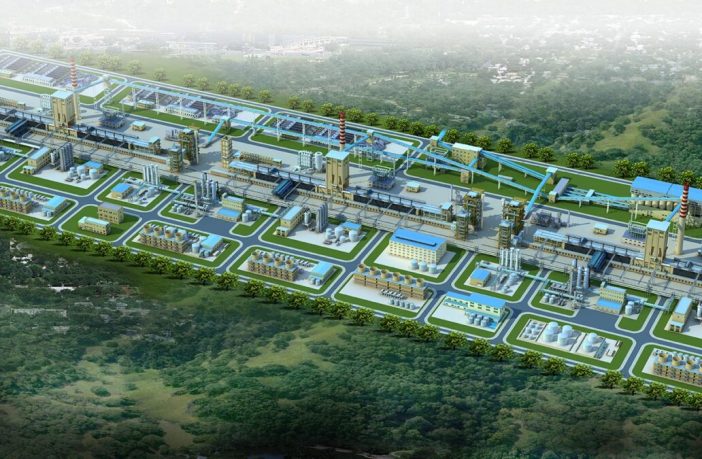- The UNDP wants to can their support and memorandum of understanding (MOU) with the developers of the Musina-Makhado Special Economic Zone (MMSEZ) in South Africa, which they thought was a state owned company (SOC).
- A new report released by their Social and Environmental Compliance Unit (SECU), after complaints were made, reveals that the MOU has reputational and operational significance for their country office and UNDP.
The complainants claims that the UNDP has caused harm to communities and the environment because it acts as an endorsement of the MMSEZ by a UN entity, thus lending UN goodwill to a proposal which has otherwise faced public opposition in South Africa. The complainant further claims that the proposed activities in the MMSEZ “will have significant impacts on water use, air pollution, climate change, biodiversity loss, sacred and heritage sites, and many other aspects of life for people living in the area.” The Complainant further claims that “the agreement signed will not be of benefit for climate change mitigation, protection of biodiversity and pulls SA commitment to transition to a low carbon development backward.”
The project is located in the Musina-Makhado Special Economic Zone (MMSEZ) which lies in the Vhembe district between the towns of Musina and Makhado. The beneficiaries include project coal supplier MC Mining, formerly Coal of Africa, whose investors include the South Africa’s Industrial Development Corporation. The Chinese businessman Ning Yat Hoi, whose Chinese-registered company, Shenzen Hoimor Resources Holding Company, was appointed by the Ministry of Trade, Industry and Competition as the de facto operator of the zone for an effective term of 120 years.
MMSEZ is made up of two sites and located in two municipalities (Musina and Makhado Local Municipalities), with the south site falling under the Vhembe Biosphere Reserve. The project was approved in 2016 and is a plan to construct a complete energy and metallurgical industrial chain.
Related news: Why is the IDC financing coal mining in Limpopo?
Environmental groups are against the development. There are multiple court challenges against the project including claims of a flawed environmental impact assessment approval. Read more
According to David Tshidzumba Executive Director for Save Our Limpopo Valley Environment, “The MMSEZ is being touted as an economic game-changer for SA and Limpopo but I believe this will be a game-changer of the worst kind. This metallurgical cluster would be an industrial zone which would be created by destroying around 3000 hectares of near-pristine natural and sacred environment in the Baobab Belt. Moreover, the affected section of the Vhembe Biosphere Reserve is home to diverse fauna and flora, which can only be found here.”

The garage sale of Limpopo’s resources wraps up? Special Economic Zone Operator Permit Handover to the officials from the Shenzen Hoimor Resources Holding Company for the South African Energy-Metallurgical Zone of the Musina-Makhado Special Economic Zone, September 2017. Image credit: MMSEZ
After a full review of the evidence, including a field visit to South Africa, the UNDP watchdog, SECU, made the following findings:
- The Country Office (CO) should have used the template for an MOU with a private sector entity when preparing and signing the MOU with the SOC and should have asked for the required representations from the SOC to fully inform itself about the potential risks to UNDP’s reputation from an association with the SOC and MMSEZ.
- The CO failed to undertake the due diligence required by the UNDP’s Policy on Due Diligence with the Private Sector and associated Risk Assessment Tool before entering into the MOU with the SOC, and failed to escalate and/or consult with UNDP HQ about its decision to enter into the MOU with the SOC.
- The MOU that UNDP signed with the SOC had reputational and operational significance for the CO and UNDP.
- The UNDP CO failed to give due regard to the applicable SES programming principles before entering into the MOU with the SOC. SECU recognises, however, that, while the programming principles apply to all UNDP programming activities, the SES does not provide clear guidance about how UNDP staff should apply the programming principles outside of the project context. This lack of clarity made it difficult for the CO to comply with its obligations in this regard.
- The UNDP CO’s acts of non-compliance with relevant UNDP policies have increased the threat of harm to the complainants.
SECU recommends that the CO should withdraw from its current MOU with the Musina-Makhado Special Economic Zone SOC, explaining that it used the wrong template. If the SOC wishes to continue its relationship with the UNDP, the parties will need to prepare a new MOU using the correct template, and the UNDP CO will need to complete the due diligence required by the applicable UNDP policies, including the necessary consultations with the appropriate offices in the UNDP hierarchy, before signing a new MOU.
Link to the full UNDP SECU report HERE
Author: Bryan Groenendaal















